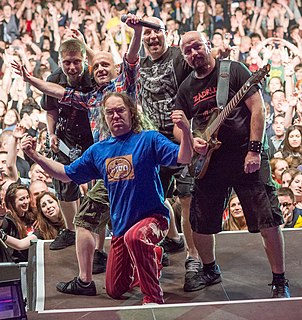Siniša Vuco, better known simply as Vuco, is a Croatian recording artist and singer-songwriter.

Želimir "Željko" Bebek is a Bosnian and Croatian vocalist and musician most notable for being the lead singer of former Yugoslav rock band Bijelo dugme from 1974 to 1984. He also has a successful career as a solo artist.
Selma Bajrami is a Bosnian pop-folk singer. Her professional music career began when she was a teenager with the release of her first studio album Kad suza ne bude... in 1998. Since, she has become one of the regions leading pop stars with multiple hits and eight albums. Bajrami lives in Vienna, Austria.

Šemsa Suljaković is a Bosnian and former Yugoslavian folk singer.
Vera Matović is a Serbian folk singer. Her career started in 1974 with the release of her first album, Pomiri se sudbinom; she has since released 26 albums and 13 singles. She finished Economical secondary school. During primary school, she sang with her brother's orchestra in Čačak.

Hladno pivo is a Croatian punk rock band. The recording act, fronted by Mile Kekin, remains one of the most popular rock bands in Croatia.
Sead "Sejo" Kalač is a pop-folk singer popular in the former Yugoslavia.

Neda Ukraden is a Serbian singer from Croatia. Her professional career stretches back to 1967.
Miroslav Ilić is a popular Serbian folk singer-songwriter and philanthropist. He is known for his powerful vocals and emotional lyrics. Before becoming a musician he took Electrical courses at the University of Skopje. With 25 albums, he is one of the best-selling performers in the history of Serbian music. Nicknamed Slavuj iz Mrčajevaca, he has worked together with several popular Yugoslav musicians such as Lepa Brena. In recent times, he has spoken out against the new generation of Serbian music videos, claiming that music videos are becoming more and more sexually suggestive and inappropriate for general audiences.

Damir Nikšić is conceptual artist, standup comedian, blogger and politician from Bosnia and Herzegovina. One of his best known art works is a seven-minute-long video entitled "If I wasn't muslim" (2005).
Creative4D is a Serbian video production company specializing in the production of music videos. The Director of Creative4D is Vedad Jasarevic, proclaimed music video director in the Balkans. Several of their music videos were produced in cooperation with Visual Infinity.

Balkan is the second studio album by Bosnian-Serbian pop-folk recording artist Seka Aleksić. It was released 1 December 2003 through the record label Grand Production

Predrag Gojković Cune was a Serbian vocalist and recording artist with a career spanning six decades.
Srđan Marjanović is a Serbian singer-songwriter from Belgrade.
Dragana Todorović, known by her stage name Jana, is a Serbian turbo-folk and pop folk singer.
Zorica Brunclik is a Serbian singer of folk music; both traditional and newly composed. Arguably one of the most famous ex-Yugoslavian artists, Zorica Brunclik is known for her singing voice, fashion style and bright pink hair.
Fahrudin Pecikoza is a Bosnian songwriter. He has written lyrics for Bosnian, Croatian and Serbian singers.

Voljela sam oči nevjerne is the debut studio album by Bosnian folk singer Hanka Paldum. It was released 13 February 1974 through the record label Diskoton.
Dalibor Brun is a Croatian recording artist who rose to prominence with his work in Yugoslav music acts Uragani and Korni Grupa, but also maintained a successful solo career since 1969.

Putni tovaruš is a prayer book written in 1660 by Croatian poet and noblewoman Katarina Zrinska on her estates in Ozalj. It was first published a year later in Venice.










